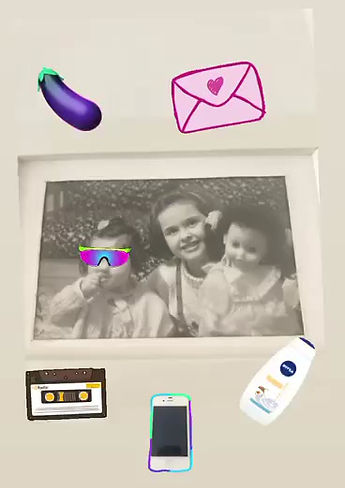Irem
Aydın
Ongoing Artistic Research: Exploring a Lubunya Galaxy: Queer Sci-Fi Aesthetics and Migration Narratives in Theatrical Space
The Artistic Research on Envisioning a Lubunya Galaxy*: Queer Sci-Fi Aesthetics and Migration Narratives in Theatrical Space
International Conference | June 5-6, 2025, Regensburg, Germany.

Futuristic Nostalgia -
A Research Project (2023)

Derived from the Greek words of nostos(return) and algos(pain), Nostalgia is a bittersweet longing for something or someone from the past that can no longer be experienced. Mainly triggered by dysphoric states such as loneliness or undesirable moods; Nostalgic feeling can be sensed both individually and collectively as a group, generation or even nation. Regarded as a sickness by the 20th century, nostalgia then was downgraded to a variant of depression marked by loss and grief. More recently in its long history, it is regarded as a coping mechanism in times of loneliness and isolation which finally generates positive effects.
Often mistaken for homesickness, it is no coincidence that nostalgia is commonly experienced by immigrants. Being dislocated causes loss of stabilizing factors to maintain identities such as family and friends, a sense of place, language, familiarity of objects and architecture structuring one’s life. However, as many research points out, nostalgia helps coping with the initial reaction to negative effects of migration and exile as a process and step further to new possibilities and a hopeful future. Many people use linking objects to keep themselves in between the lost place of origin and the place of current life. These linking objects could be concrete photographs, music, maps, food, souvenirs or abstract inner entities such as thoughts, memories or even traditionality.
On the other hand, technological innovations over the last decades have radically transformed the immigrant experience of nostalgia by enabling different tools and mediums. It helps people keep in touch with their families and friends which makes them feel less lonely, but also preservation of old ties can create isolation as rapid technological change with advanced communication tools create sensorily rich experiences. Even the trends on social media such as throwback videos on Tiktok or ‘on this day…years ago’ on instagram and facebook displays the acceleration of the perception of nostalgia in the contemporary world. Even though nostalgia and technology regarded as counterparts as the former refers to the past while the latter refers to the future they are highly connected as Svetlana Boym stated Nostalgia is not always retrospective since the fantasies of the past determined by the needs of the present have a direct impact on the realities of the future.
Futuristic Nostalgia is a research process scrutinising the emotional effects of technological developments and communication tools on migration experience in different generations on their perception of nostalgia by focusing on Turkish speaking people in Germany.
The research project is supported by Fonds Darstellende Künste with funds from the Federal Government Commissioner for Culture and the Media within the program NEUSTART KULTUR.